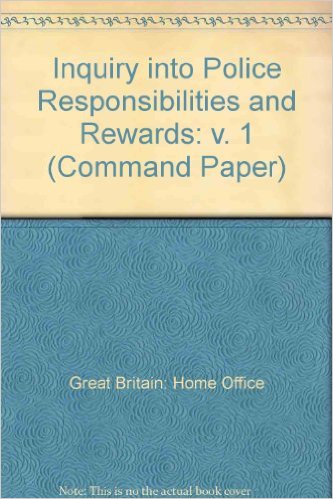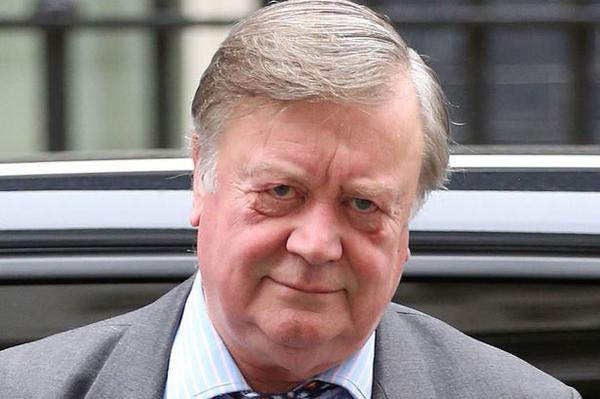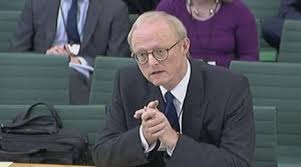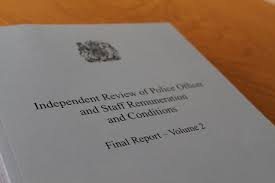The Sheehy report was about Policing, its remit: “to examine the rank structure, remuneration, and conditions of service of the police service of England and Wales, in Scotland and in Northern Ireland, and to present recommendations if found necessary.”
The report was aggressively seized upon by a power hungry Cameron who set himself, and the Home Office, on a collision course with the Police Federation and police services throughout the UK by trying to force through its recommendations. The recommendations were basically a series of cost cutting exercises to allowances and officers’ conditions of service. It was berated from the top down for being nothing but.
Sheehy went further than cutting allowances though. He wanted to tackle what he called the ‘jobs for life culture’ in the police. He advocated fixed term contracts for all officers, the abolition of three ranks to create a slimmer management structure, performance bonuses of up to 30 per cent for chief constables and tighter restrictions on medical retirements.
Perhaps the most controversial recommendation was the abolition of an indexed linked annual pay award. This was to be skills based and there would be no automatic right to an annual upgrading of pay in line with inflation.
That sounds familiar, I hear you say.
The vast majority of Sheehy’s recommendations were ignored and then rejected by Michael Howard, I’m sure, much to the annoyance of a power hungry David Cameron. Why do I say that?
The Conservatives lost the general election to Labour in 1997. Much of the public disquiet was about Black Wednesday and what followed. Cameron found himself out of a job. The police had won, they’d outlived Cameron and Sheehy...or had they?
Fast forward to 11th May 2010.
David Cameron stood before the country, now its Prime Minister, having agreed a deal with the Liberal Democrats after failing to secure enough votes to win outright.










